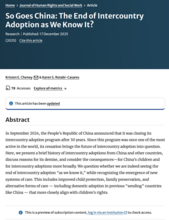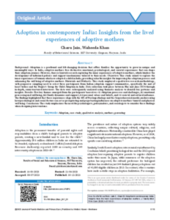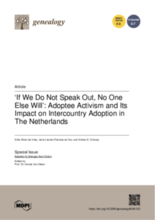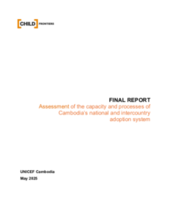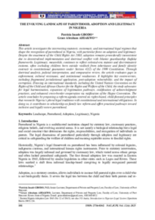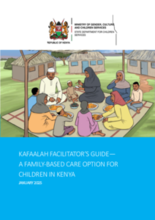Displaying 1 - 10 of 658
This article presents a brief history of intercountry adoptions from China and other countries, discusses reasons for its demise, and considers the consequences—for China’s children and for intercountry adoptions more broadly. It questions whether we are indeed seeing the end of intercountry adoption “as we know it,” while recognizing the emergence of new systems of care.
This video highlights the rise of a locally led movement in Ethiopia, where Christian leaders and organizations are transforming child welfare practices following the end of intercountry adoption. It showcases the impact of the CAFO-supported DEBO Alliance as churches and advocates embrace domestic adoption and best practices to bring hope and lasting care to vulnerable children and families.
This study compares child custody and guardianship norms in classical Islamic jurisprudence and modern codifications, focusing on Indonesia’s Compilation of Islamic Law and related laws in selected ASEAN and European countries. It finds that integrating the “best interests of the child” with Islamic legal reasoning through maqāṣid al-sharīʿah can promote child protection and gender equity, offering insights for legal reform in plural societies.
This qualitative study explores the emotional, psychological, and social experiences of adoptive mothers in India through in-depth interviews, identifying key themes related to adoption processes, wellbeing, family dynamics, personal values, and societal influences. The findings highlight how these experiences interact with biopsychosocial factors, underscoring the need for more informed, mother-centred policies and support mechanisms in the adoption system.
This article highlights the role of adoptee activism in raising awareness and changing policy regarding Intercountry Adoption (ICA) in The Netherlands. Through interviews with a selection of adoptees engaged in activism, this study shows that adoptees became engaged in activism as a result of growing adoptee consciousness in combination with encountering irreconciliation; they employed many types of activism, sometimes with different goals and strategies; they cooperated in different constellations and with many allies such as journalists, lawyers and scholars; and their activism had significant impact on general awareness and government policy.
This report presents an independent assessment of Cambodia’s national and intercountry adoption systems, with a focus on the country’s progress in aligning adoption practices with international standards for child protection and family-based alternative care. Commissioned by UNICEF Cambodia in collaboration with the Ministry of Social Affairs, Veterans, and Youth Rehabilitation, the assessment evaluates the current capacity, processes, and legal frameworks governing adoption, and provides recommendations to strengthen the system in the context of Cambodia’s ongoing care reform agenda.
On October 23, 2025, the Transforming Children’s Care Collaborative hosted a webinar exploring Kafaalah—a long-standing childcare practice in Muslim communities that has been observed for more than 1,400 years.
This article analyzes how Nigeria’s statutory, customary, and international laws intersect to shape adoption and legitimacy, revealing inconsistencies, cultural resistance, and systemic weaknesses that undermine children’s rights. It calls for legal harmonization and reforms grounded in child-centered and rights-based principles to create a more inclusive and secure framework for recognizing parenthood.
This package of materials on Kafaalah - was developed by the Government of Kenya in collaboration with Changing the Way We Care, UNICEF, and other key development partners and civil society actors.
The Kafaalah Facilitator’s Guide is part of a training package to strengthen understanding and implementation of Kafaalah, a family-based alternative care option for children in Kenya. Developed by the Government of Kenya with support from Changing the Way We Care, it provides structured session plans, tools, and activities to help child protection professionals and community members effectively promote and practice Kafaalah.

